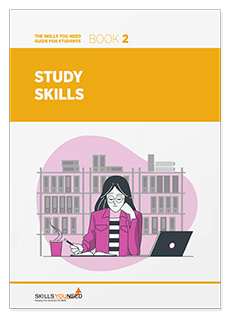10 Skills You Need to Get an Online Degree
See also: Online Education and LearningThere are several advantages that come with online learning. From flexibility to convenience, you can get a lot more done in a short period, which is valuable for anyone who has a family, young children, or a full-time job. However, getting your online degree isn’t as easy as it seems.
Students have to be ready to succeed before they can start their courses because online learning can be just as, if not more difficult, than learning in a traditional classroom setting.
On top of that, you need a specific set of skills to complete your online degree courses.

Skills That Make a Successful Online Learner
The number of students enrolling in online degree programs is increasing year after year. If you want to be one of these impeccable learners, you’ll need to have (or acquire) the following skills.
1. Humbleness
Being able to ask for help is essential when you’re learning. If you’re humble enough to recognize your mistakes, you’ll be able to speak to your teachers or classmates for guidance to reduce them in the future. However, you also need a school that works to support you.
For example, Victoria University in Australia offers a Master of Public Health online to students with a seven day, morning-to-evening support network that focuses on helping them succeed.
2. Communication
In an online degree program, you won’t have as much access to your professors as you would at university. You won’t be able to drop by their office after class, so you’ll have to contact them via email. If you don’t know how to conduct proper email correspondence, this could be tricky.
Most of your professors expect you to approach them casually, but they also want you to write an effective email that gets to the point. Improving your communication skills will help you here.
3. Self-Discipline
Since you’re taking an online course independent of your peers, you won’t be able to rely on them to study or keep track of your assignments. All students should create a schedule that includes logging into their online portal, staying for a class, and preparing for deadlines.
Staying disciplined doesn’t just include organization; it also requires you to stay on track. You should know what your best learning setting looks like and how to minimize distractions.
4. Self-Motivation
For some University students, simply showing up for class is enough to motivate them. It’s an “I’m already here, I might as well work” mentality, but with an online course, you don’t physically have to be present in a school. Therefore, you have to be motivated to show up consistently.
Staying organized is the best way to stay motivated and reduce overwhelm. We all have the same time available to us in the day, but if you use it wisely, you’ll feel like you're progressing.
5. Time Management
In university, you should stick to this general rule: for every 2-3 hours of class time, expect to spend 6-9 hours per week on assignments, class discussion, studying, and reading. If you’re taking a full course load of 15 hours, expect to book off 30-45 hours a week for school.
It’s important to schedule your weeks in advance to account for due dates and other learning activities. If you frequently procrastinate, try to get a handle on this habit before going to school.
6. Computer Literacy
Even if your coursework has nothing to do with IT or computers, you still need basic technical knowledge to navigate your computer and recommended software. Always make sure you test the software you’ll use before the first day of class, so you can keep up with the teacher.
Most online schools will offer orientation programs that teach them how to use online tools, but they may not only cover the basics. Either way, your computer must meet course requirements.
7. Reading and Writing
About 54% of U.S. citizens aged 16-74 lack proficiency in literacy and read below the equivalent of a sixth-grade level. Several students will be accepted to great schools and have trouble with reading and writing, so it’s vital that you can comprehend the material before you apply.
It’s also vital that you can type at more than 40 words per minute and read text as you’re typing. Some tests will require short and long answer segments that require lightning-fast typing skills.
8. Persistence
If you’re able to tolerate technical problems, stay motivated after running into a challenge, and stick with the schedules you create, you’ll be highly successful when learning online. Getting a degree is difficult, but your ability to persist despite those difficulties is a great trait to have.
Persistence is also about consistency. There will be days where you won’t want to participate in school, and that’s normal. However, you have to commit to online learning to get your degree.
9. Critical Thinking
Critical thinking and problem-solving skills are essential in university. While there are no universal standards for what's included in the critical thinking process, the ability to identify a situation or a problem and being able to solve it despite your biases are key factors.
Curiosity is also a great critical thinking trait. You likely have some level of curiosity if you’re in an online learning course, but cultivating it can help you solve difficult open-ended questions.
10. Research Skills
One critical thinking skill that’s absolutely vital to your success in university is your ability to research. When comparing an argument, independent research skills are needed. Remember that all arguments are meant to be persuasive, but they may not be backed by facts.
Your ability to separate fact from fiction relies on context and reliable information. By developing an eye for unsourced or unviable claims in any context, you become much more perceptive.
Further Reading from Skills You Need
The Skills You Need Guide for Students

Develop the skills you need to make the most of your time as a student.
Our eBooks are ideal for students at all stages of education, school, college and university. They are full of easy-to-follow practical information that will help you to learn more effectively and get better grades.
A Great Study Environment Helps
While having the skills in this article will help you get your online degree, a great study environment can improve your learning experience. If you’re able to stay in a quiet office with a closed door, comfortable seating, and few distractions, you’ll be able to focus on your studies.
About the Author
Cristina Par is a content specialist with a passion for writing articles that bridge the gap between brands and their audiences. She believes that high-quality content plus the right link building strategies can turn the tables for businesses small and large.


